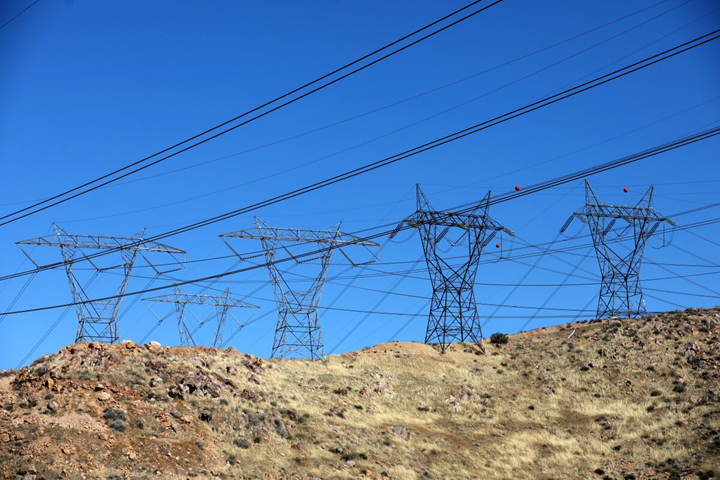
With nearly 200 million Americans frying under extreme heat, and water off the coast of Florida reaching hot tub temperatures, Americans can see the climate crisis with their own eyes. We know we must cut fossil fuels as fast as possible. Yet the Edison Electric Institute — the trade association that represents privately owned utilities providing power to more than 235 million people across all 50 states — is planning to oppose a critical part of President Biden’s efforts to address the climate crisis.
The disturbing thing is: I’m funding this effort to delay climate action. If you live in Southern California, you’re probably funding it too.
As a customer of Southern California Edison, the electric utility that supplies much of Los Angeles County and others surrounding it, my energy payments flow upward to Edison International, the parent company of SCE. Its CEO, Pedro Pizarro, is the current chair of EEI. So, while Southern California Edison boasts that it is “leading the transformation of the electric power industry,” it’s really leading the electricity industry backward to dirty fossil fuels.
In May, the Biden administration proposed to limit carbon pollution from power plants, as is required under law. The federal government’s proposal would make existing coal and gas plants burn cleaner fuels or install equipment to capture climate pollution. It would also require new fossil fuel plants to limit their carbon pollution. The proposal gives the industry more than a decade to figure out its plans — an extremely generous timeline.
If anything, these rules are too lax. The proposal exempts more than 80% of today’s fossil gas power plants, many of which operate in communities’ backyards and are some of the dirtiest and most expensive in the country.
But while the planet burns, the electric utility association wants weaker rules and is planning to oppose the Biden administration’s proposal.
It’s particularly egregious to watch this play out on Southern California Edison’s watch. The trade group’s opposition is completely out of line with SCE’s own climate commitments to be 80% clean by 2030 and 100% by 2045. It’s also inconsistent with California law, which will hold the utility to that 2045 deadline. Under Gov. Gavin Newsom’s leadership, it’s already clear that our state will not be building new gas plants. SCE has no justification for opposing Biden’s plan.
Unfortunately, we’ve seen this kind of behavior from utilities for decades. As my research has documented, electric utilities have worked to spread climate denial and delay climate action for the last 50 years.
Since 2000, electric utilities have consistently argued that they can continue building new fossil fuel plants because they will be able to use “clean coal” and “carbon capture” technologies. My research found that the utility industry has talked more about these fossil fuel solutions than all renewable energy technologies combined. Yet now, the Edison Electric Institute plans to argue that carbon capture will be too “difficult.”
The truth is that electric utilities could profit from the clean energy revolution — if they would only get out of their own way. As Americans transition to electric vehicles and heat pumps, demand for electricity will grow. Electric utilities have a chance to win big.
Backing old, dirty energy is a loser’s bet. Across the country, nearly every coal plant could be shut down tomorrow, replaced with wind and solar, and it would save customers money. In fact, building solar and batteries is half the cost of new fossil gas plants. And, as we deal with extreme heat, wildfires and winter storms, batteries are proving to be more effective at keeping the lights on than expensive and unreliable fossil gas plants.
Across the planet, the signs of climate breakdown are growing more disturbing by the day. In June, more of Canada’s boreal forest burned than in the last 20 years combined. Sea ice in Antarctica has shrunk to record lows. Last month was the hottest month ever recorded. It’s unconscionable for a utility executive to read the news and lobby against climate action.
With climate disasters playing out in his own backyard, Pizarro of Edison International has repeatedly said that clean energy and electrification are the only path forward, and that he’s “highly optimistic” that the utility industry can make the rapid transition “because frankly we don’t have a choice as a society.”
These bold words must be followed with bold action. He and his fellow utility executives are faced with a choice: They can stand behind the trade group’s effort to kneecap climate action, or they can honor their commitments and reject that extreme stance. This week, leading climate groups sent a letter calling on utility executives to publicly renounce the trade group’s position. Those who refuse should be ashamed.
With the public comment period for the proposed federal rules closing on Aug. 8, there’s still time for Southern California Edison and the utility trade association to do the right thing.
There are times when life gives you the opportunity to act in line with your values, to be on the right side of history. Pizarro, a top industry leader, says he wants to lead on climate. Now’s his chance to show he means it.
Leah C. Stokes is an associate professor of environmental politics at UC Santa Barbara, a senior advisor at Rewiring America and the author of “Short Circuiting Policy.” @leahstokes
Source: Los Angeles Times
August 5, 2023


